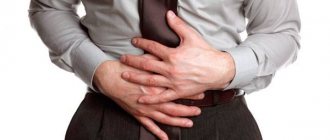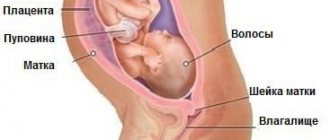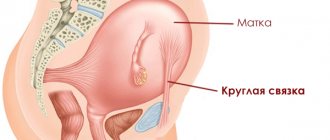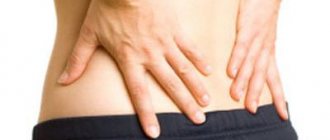Often, after implementing an IVF protocol, expectant mothers are concerned about a very important question: what will a successful or unsuccessful protocol feel like on a day-to-day basis. A woman should listen to her body and understand what processes occur in her body after replantation. This is the direct responsibility of the patient. Indeed, according to statistics, only in 33-40% of cases IVF gives a positive result the first time, and if certain sensations are detected in a timely manner, you can save your pregnancy by contacting your doctor in time.
Feelings in the first days
No specialist will give a 100% guarantee of pregnancy during IVF. Therefore, you need to mentally prepare for a possible negative result and perhaps try again after a while.
Many experienced gynecological reproductive specialists say that a woman often cannot physically feel how the embryo is implanted into the uterus at the initial stage. At the beginning, the development of the embryo by days should not be felt in any way (this applies to days 3 and 5). The sensations appear a little later. A woman may begin to experience the same things as during a normal pregnancy only from 7-9 days after the replantation.
First of all, the patient needs to pay attention to the following changes in well-being:
- increased sensitivity of the breast, its swelling;
- the appearance of nausea (toxicosis);
- the appearance of discomfort in the lower abdomen (pulling, twisting);
- frequent and sudden mood swings;
- general weakness of the body, drowsiness;
- changes in taste and smell;
- increase in basal temperature;
- constipation (it is very important to know what to do in this case, this is described in detail here);
- increase in body temperature to 37.8 degrees.
- spotting, similar to menstruation (read more about all types of possible discharge in our separate article here).
Nagging pain in the abdomen, swollen breasts, constipation and frequent urination, nausea - these are the main sensations after embryo transfer.
Please note that these are all indirect signs of successful IVF and should not be relied upon entirely.
All these are consequences of the hormonal imbalance inherent in the body at the beginning of pregnancy. You also need to understand that the same symptoms sometimes accompany premenstrual syndrome (
How does fertilization occur?
Conceiving a child is the fusion of female and male reproductive cells. This process is controlled by the hormonal background of the female body and depends on the indicators of the man’s seminal fluid. During fertilization, a woman usually does not experience any unusual symptoms. She can only feel the release of the egg from the ovary.
Ovulation
Some women clearly feel ovulation. Usually this happens on one side; less often, both ovaries ovulate.
As the dominant follicle grows, the sex gland enlarges. This is accompanied by slight pulling sensations that are localized on the corresponding side of the uterus. The rupture of the follicle and the release of the egg may cause a shooting sensation in the left or right side. Usually these signs are short-lived and do not cause the woman serious discomfort.
If PA occurs at the time of ovulation or shortly before it, it can lead to conception. In the following days, the fertilized cell will divide and gradually move towards the uterine cavity along the fallopian tube.
Implantation
Finding out that fertilization has occurred is quite difficult. In the first week after conception, a woman may experience unusual new signs, but gynecologists do not recommend taking them as reliable symptoms of pregnancy.
Implantation after fertilization will take place in 3-7 days. If conception occurs, within a few days the fertilized egg moves towards the uterus. When it reaches its target, it attaches to the mucous membrane. This process is accompanied by slight damage to small capillaries. Therefore, a woman may notice beige or bloody discharge a week before her period. They are considered an indirect sign of pregnancy.
But these allocations may not exist.
Useful tips
The first few weeks after IVF are the most important, so during this period you should strictly follow the doctor’s recommendations and reduce the impact of negative factors on the body. At this stage, the female body is most vulnerable, therefore, without proper care and nutrition, it will be extremely difficult for it to cope with the new load.
To increase your chances of a successful outcome of the IVF procedure, you need to:
- Take multivitamin complexes (only after consultation with your doctor). The most necessary at this stage are vitamin D and Zn (zinc).
- To refuse from bad habits. Even when planning a natural pregnancy, smoking and alcohol abuse are unacceptable. When undergoing IVF, a woman should take even better care of her health. Experts also recommend giving up caffeine.
- Maintain a positive attitude and follow the doctor's instructions.
Proper and healthy nutrition combined with a good mood are prerequisites for a woman after the procedure.
Read in detail about what needs to be done after replanting in our separate article here.
“Subtleties” of conception
When my husband and I came to the conclusion that it wouldn’t be a bad idea to have a child, then I, as a person who wants to approach and approaches any issue thoroughly, before getting down to the business itself, I thoroughly studied everything, probably surfed the entire Internet along And on top of that, I bought all sorts of magazines on “children’s” topics, read all sorts of books, talked to doctors and specialists and, as they say, collected “a string from the world,” I compiled this list. Which, I hope, will help, inform and warn everyone who is planning to conceive in the near future from some mistakes. So, a woman and a man really want to have a child, but how can we increase the likelihood that conception will occur as quickly as possible? Sometimes it’s just enough to have sex correctly and know all the “subtleties” of conception! The main thing is to catch ovulation! Determine the day of ovulation (when the egg leaves the follicle into the abdominal cavity). This usually occurs on days 14-16 from the first day of the last menstruation (with a cycle of 28-30 days). But this is usually the case, but in reality, it happens differently; ovulation can occur even during menstruation (but this is rather an exception, but it still happens). A mature egg lives from 12 to 24 hours, and only during this time can fertilization occur. And only a woman who carefully monitors her body can guess for herself that the time has come for ovulation. In pre-ovulation days and on the day of ovulation, a woman may feel slight nagging pain in the lower abdomen, breast tenderness, increased libido, feel slight pain in one of the ovaries, and also notice that daily discharge has become similar in consistency to raw egg white. Have sex three times a week. You will do the wrong thing if you direct all your energy to sex at the time of expected ovulation and forget about intimacy during the “safe days”; it would be more correct to start having sex immediately after the end of the menstrual period. Since we have already understood that ovulation can occur on any day, especially if the girl does not have a regular menstrual cycle, therefore, sex 3 times a week will help not to miss the very moment when conception is possible! But no need to go to extremes! It is strictly not recommended to have sex every day, because... Daily ejaculations will negatively affect the quality and quantity of sperm. Daily sexual intercourse makes the male body sterile. A man needs up to 48 hours to accumulate enough sperm for fertilization. And from this point of view, the most optimal regimen, according to sexologists, is three times a week, or in other words, about once every two days. Various studies by scientists have shown that abstaining from sex for more than seven days can cause a decrease in male fertility (ability to bear children): with abstinence, the number of sperm increases, but not its morphological characteristics. When it comes to sperm, it is true that quality is more important than quantity! Thus, the established opinion that abstinence is necessary before conception is not entirely correct. It's better to have sex before ovulation, not after. There is a short period of time during your cycle when you can get pregnant. After ovulation, the egg can be fertilized within about 24 hours. Sperm, in turn, live from three to five days. This is why sex 2-3 days before ovulation increases the chances of successful conception. But, I repeat, there is no need to wait until the day of ovulation to make love, since the partner’s sperm will live in the woman’s body for several days and the woman will not miss the chance to get pregnant. Sex should be fun! Thanks to desperate attempts to get pregnant, sex in a couple can become mechanical and stop bringing pleasure. Meanwhile, this also plays an important role. It turns out how aroused you are can affect your chances of conceiving. Many researchers claim that orgasm increases your chances of getting pregnant! Don't focus on wanting to get pregnant! Don’t stress, don’t get hung up, don’t fall into despair, “turn off” what is called your head and relax. A healthy and reasonable desire for pregnancy helps conception much more than tense, gloomy calculation of cherished days, hysterics over the arrival of menstruation, blaming each other for the inability to conceive. Is posture important? The best position for those who want to become parents is missionary. It makes sense to place a pillow under your buttocks during sex. The likelihood of pregnancy is reduced if, after ejaculation, sperm immediately flows out of the vagina or simply does not come into contact with the cervix. Therefore, say, the “woman on top” position or the standing position cannot be considered optimal for conceiving a child, since in such positions sperm flows out easily (although conception is by no means impossible in these positions). Also keep in mind that the first portion of ejaculate contains the largest number of sperm. Many people believe that after intercourse a woman should lie with her legs raised for half an hour. True, the effectiveness of this method has not been scientifically proven, but you can still try it to be more likely. But if you look at this issue from a medical point of view, it turns out that sperm have a special means of transportation - a flagellum, so couples do not have to worry about the position they take. When seminal fluid enters the vagina, millions of sperm rush up to the uterus and are there in just five minutes. Only diseases of the cervix can prevent them. And the fact that a small part of sperm leaks out after sexual intercourse is completely natural, and there is no need to worry about this. Be careful with oral sex! It turns out that saliva has a negative effect on sperm, as most studies have shown. Be careful with sports! Increased physical activity causes a protective reaction of the body: it has no time for pregnancy, it devotes all its energy to muscle development. So the chances of conceiving are somewhat reduced. In addition, excessive muscle tension can lead to a reflex change in the contractile activity of the fallopian tubes and the uterus itself, and this is both an obstacle to the meeting of sperm and egg, and reduces the chances of attachment of the fertilized egg to the uterus. So it makes sense, a couple of months before the expected conception, to reduce the load so that it remains at a level that does not strain the body too much, and it is also important not to overly pump the abs. Stop dieting! Eating low-calorie foods or not eating enough food and, as a result, losing weight, negatively affects the hormones responsible for fertility. When planning a pregnancy, it is better to say goodbye to the diet at least several months before trying to conceive. What's the probability? For most couples who are planning to conceive, the chances of getting pregnant in any given month are approximately 15% to 25%. According to statistics, a healthy married couple who has sex 2-3 times a week without contraception usually takes six months to a year to conceive. So don't worry if you don't succeed the first time. The average chances of getting pregnant by having unprotected sex: 25% of couples manage to conceive in the first cycle 40% within the first three months of trials 65% within 6 months of trials 75% within 9 months 85% within the first year 90% within 18 months Difficulties in conceiving. For conception, a combination of certain circumstances is necessary. Here are just a few of the factors that sometimes cause such a delay. — A woman’s lack of weight (especially if she weighs less than 50 kg) can interfere with ovulation. — Excess weight in a woman often causes an increase in estrogen levels, which leads to cycle irregularity and ovulation disorders. — One of the factors for delayed or absent ovulation may be psychological stress in a woman. And also studies have shown that the less stress and troubles a man experiences, the more germ cells his testicles produce. — Vaginal microflora must be balanced. Artificial vaginal lubricants (lubricants, etc.) often contain spermicides - substances that destroy sperm. Vaginal sprays and douching affect the acidity of the vagina, which can make it difficult for sperm to survive. In addition, douching (among other things can lead to infections and inflammation), the use of vaginal aerosols, scented pads and tampons, etc. can disrupt the pH balance of the vagina and can cause allergic reactions that kill sperm, as well as flush out the cervical fluid, making it impossible for sperm to move towards the egg. — The effect of caffeine and nicotine on fertility has not yet been studied in detail, however, there is noteworthy data indicating that these substances can reduce spermatogenesis, in other words, delay the formation of sperm and impair their motility, as well as complicate the processes of fertilization and egg implantation . Therefore, both partners need to at least limit, or better yet, completely abandon coffee consumption and smoking. Try to reduce the amount and strength of your coffee and tea. And also do not forget that there are also other caffeine-containing drinks (for example, Coca-Cola, etc.). — Taking antibiotics in the recent past may have caused disturbances in the bacterial flora in the vagina, which can interfere with conception. After completing antibiotic treatment, a woman needs to use contraception for 1-2 cycles, and only then think about conception. But if a man was treated with antibiotics, then he should abstain for 3 months, because sperm mature in approximately 70-90 days. - This may seem very funny to some, but still, the right men's trousers and underwear can really, to a certain extent, increase the chances of success if you are planning to conceive a child. It’s quite simple to explain: the optimal temperature for sperm maturation is about 2 degrees below the general body temperature. To ensure this temperature in the testicles, they need to hang freely in the scrotum. But wearing tight underwear or trousers, elastic panties, as well as underwear made of synthetic materials increases the temperature of the testicles, and this increase in temperature is sometimes so significant that it can reduce the formation of sperm and impair the ability to fertilize (mature sperm simply cannot survive or even cannot form from such a high temperature). Studies to establish the relationship between the type of underwear and fertility have shown that men who wore boxer shorts had a higher sperm count than those who wore tight underwear. For the same reasons, men who are concerned about procreation are not recommended to lie in a hot bath, steam in a sauna, use a heated car seat, or be overweight. Therefore, avoid anything that directly or indirectly leads to an increase in temperature in the groin and perineum area. Try to wear loose cotton underpants. At home and wherever possible, wear loose clothing. Also, if a man sits for long hours, the temperature in the groin area certainly rises. Therefore, men, by the nature of their professional activities, who lead a predominantly sedentary lifestyle, must get up and walk from time to time so that the testicles move away from the hot body. If it is hot, it is recommended to use special breathable mats on the car seat to avoid overheating and sweating in the groin and perineum. - Attention to the genitals! In addition, both partners should protect themselves from hypothermia and in every possible way avoid situations in which overheating or hypothermia of the genital area may occur. It is also important not to allow the genitals to become numb (due to long or uncomfortable sitting or very tight clothing), because Poor circulation in this area negatively affects reproduction. If pregnancy does not occur... First of all, you should remember that after stopping taking oral contraceptives, at least a month must pass (regardless of the duration of taking the OC) until your ovulation returns to normal. In general, in most cases, fertility is restored 2-3 months after stopping oral contraceptives. For women under 30 years of age, experts recommend not to worry about the absence of pregnancy during a year of regular sexual activity without contraception. Women aged 30 to 35 years old should visit a doctor 6-9 months after unsuccessful attempts to get pregnant, but 35-40 year old women should consult a doctor after 6 months of unsuccessful attempts, and women over 40 years old - after three months of having sex without protection. If your pregnancy does not occur within this time, then it makes sense for you and your husband to visit the necessary specialists. And based on your general examinations, the doctor can recommend a specific way to solve this problem for you. Good luck! (c)
What influences the success of IVF
After IVF, pregnancy occurs in approximately 40% of cases. Therefore, married couples who decide to undergo artificial insemination should know what factors determine the success of IVF:
- The reason for the impossibility of natural pregnancy. If independent conception is impossible due to obstruction of the fallopian tubes, then the chances of pregnancy after IVF are extremely high. The chances of a positive outcome also increase if infertility is secondary. In most cases, before IVF, hormonal therapy is carried out to help prepare the female body for conception and further pregnancy.
- Patient's age. In women under 30 years of age, the chances of developing a pregnancy after IVF are significantly higher (about 60%) than in women over 40 years of age (about 6-10%).
- Level of the clinic and qualifications of the staff. All manipulations by a gynecologist, reproductive specialist and other specialists must be performed strictly according to protocols. Also, after the procedure, the patient’s health condition should be carefully monitored.
- Self-responsibility. During the implementation of the protocol, you must carefully follow all the doctor’s recommendations, take prescribed medications, vitamin complexes, and adhere to a proper diet.
If IVF is successful, the interaction between the patient and the clinic staff does not end.
What does the stronger sex feel 3
It is often said that men are rude and insensitive. In fact, this is not so, any man unconsciously wants tenderness, love and understanding. The role of a defender is inherent in him, and there is a desire to realize it. Studies show that after sex, a man has his head in the clouds, becomes more tender and often thinks about his partner, wants to please her in every possible way.
French scientists have proven that after sexual intercourse, men literally turn off their brain, or, to be more precise, the cerebral cortex. Men don't feel as strongly attached as women do after sex. Yes, they become more gentle and kinder, but as such there is no deep affection.
Such unloading for a man’s body does not remain without a trace; after the act, sleep takes its toll. The whole body is relaxed and at rest, it’s simply a sin not to sleep. Partners often perceive this as disrespect and a sign that the sex was without love. Although there are also girls who often fall asleep after intimacy.
Statistical data
Every year the level of development of medicine increases, and the percentage of successful IVF increases accordingly. If about 20 years ago the percentage of a positive protocol was only 8-10%, today it is almost 50% of cases. If artificial insemination is initially unsuccessful, then experts recommend a second and third attempt. If even after this the long-awaited pregnancy does not occur, other alternatives are considered. More details about the statistics are described here.
Often, patients are prescribed preliminary hormonal therapy, with a clearly defined schedule for taking the medications. At this time, the patient must carefully monitor compliance with the doctor’s recommendations, since it is the preparation of the body that plays an important role in the success of the IVF protocol. After embryo transfer, the patient may notice changes in well-being, which in most cases indicates a positive IVF result.
After pregnancy is confirmed, the expectant mother is prescribed, if necessary, supportive hormonal medications aimed at preserving the fetus.
Initial and repeated fertilization
Often patients who cannot get pregnant naturally want to have several children. Often they are ready for a repeat IVF procedure. But its implementation is possible only with the permission of the attending physician, since everything depends on the condition of the patient’s body and her individual characteristics.
It is not uncommon that after IVF, a woman’s next pregnancy occurs naturally, thanks to previous hormonal stimulation. This may be the case if infertility was caused by an unclear genesis, that is, it was not a consequence of dysfunction of the reproductive system and hormonal levels.
According to statistics, about 18% of women after IVF can become pregnant without the intervention of specialists.
But often you still have to do repeated IVF. It is not necessarily successful; a positive result is noted only in 40-50% of cases. To determine the feasibility of artificial insemination, the patient undergoes a preliminary examination. It allows you to get an idea of the woman’s health in general and the need for hormonal stimulation. Depending on the results of the examination, the doctor may recommend that the patient not undergo artificial insemination, since a positive result is unlikely.
Initially, after the IVF procedure, the patient can judge its success by the appearance of certain sensations.
Can a woman feel fertilization?
There is usually no sensation during conception. The process of fusion of sperm and egg is not accompanied by characteristic signs. These cells are so small that it is impossible to feel any changes. If a woman experiences pain during ovulation, she may be pregnant. Some girls intuitively feel that fertilization has occurred.
It is believed that female orgasm during PA promotes cell fusion: the vaginal muscles push sperm directly to the target.
You can find out whether conception has occurred by measuring your basal temperature. High thermometer readings indicate that you are pregnant. They usually increase immediately after ovulation, and decrease slightly on the day of implantation. Since fertilization cannot be felt, a woman can suspect pregnancy with the help of graphs. A one-day drop in temperature 3-5 days after ovulation followed by an increase is considered a sign of pregnancy. If you measure BT daily, you can find out already in the first week whether conception has occurred or not.
When fertilization occurs and a set of cells begins to move down the fallopian tube, a woman may feel slight cramps in her abdomen. After conception, sensations are caused by contraction of the tubes, with the help of which the fetus is transported into the cavity of the reproductive organ.
Gynecologists are inclined to believe that a woman cannot feel fertilization. Doctors say that often the signs of pregnancy turn out to be far-fetched and become the result of self-hypnosis.
Reviews from women about the feeling after conception
Below is the personal experience of women, which provides answers to the question: is it possible to feel conception? They are taken from the English-language women's forum:
I felt that my breasts were full and my nipples began to darken. I also felt a strong sensation in my stomach. It felt like a cramp, but my period never started. I also had to go to the toilet during sex. To confirm my doubts, I took a pregnancy test and it was positive.
Having been pregnant twice before, I can say that I feel pregnant the next day. I start to feel nauseous, so I immediately realize that I’m pregnant!
It depends on how in tune you are with your body. With my first child I was completely inattentive. I had a miscarriage, but I knew my body had changed. So with my second and third children, I knew I was pregnant before taking the test. I felt more tired, stiff, hungry, and had nausea and cramps. However, some of these symptoms can also occur after normal ovulation. Different women have different symptoms. But personally, I know that I am pregnant immediately after conception.
Contractions in the uterus
First, you should remember the main thing: normally, the uterus should not bother you during pregnancy. exceptions are mild tingling or tugging sensations in the early stages. The reasons for them are quite banal and should not cause panic: the embryo is embedded in the walls of the endometrium, the uterus grows as the baby grows and puts pressure on the bladder.
As for stronger contractions, they are more typical for the third trimester and are called training contractions. In the first 12 weeks, such symptoms require medical monitoring and exclude physical activity (this also includes intimacy).
Nagging pain
It should be noted that such sensations can signal both ovulation , conception , and the threat of miscarriage. It all depends on the expected period and circumstances.
I would like to immediately reassure suspicious mothers who just learned about their situation and began to notice this symptom. Most likely, the body simply informs you about the onset of pregnancy: conception has occurred, the uterus now needs increased blood circulation, which causes a pulling sensation.
In addition, all the uterine appendages also begin to “swell.” Sometimes it has menstrual symptoms, which often confuses the expectant mother.
If this symptom bothers you greatly and you are afraid of missing the threat of miscarriage, at the first nagging pain, take a horizontal position and relax. Did it help? Then it's a false alarm. If the painful sensations do not subside during rest and only intensify, call a doctor immediately! This may be a threat of termination of pregnancy.
Unpleasant moments of pregnancy
If you do not take into account the “harmful” toxicosis, then, ideally, there should be no other discomfort. We are talking about the first trimester of pregnancy, so these most negative aspects are minimized in this case. All that remains is frequent urination, discharge of various types, hypertonicity of the uterus and... a growing belly.
Frequent urge to go to the toilet. Your baby grows rapidly in the uterus, takes up more and more space and begins to put significant pressure on neighboring organs. Over time, of course, everything gets better, but at first the expectant mother is bothered by unpleasant sensations in the genitourinary system and frequent urges to go to the toilet (sometimes false).
Various discharges Remember: whatever they are, you definitely need to tell your gynecologist about them (and maybe show them). Particularly dangerous is bloody “daub”, which is practically a guarantee of the threat of bearing a healthy baby.
Hypertonicity of the uterus . If in the second and third trimesters of pregnancy a stiff belly serves as a guide, then in earlier stages the woman is bothered by unpleasant sensations (either pulling or aching). They are also dangerous because the oxygen supply of the fetus depends on them.
Growing belly . How can this moment be disturbing? Maybe this is not worth special attention, but the muscles itch terribly during intense stretching. The feeling is not very pleasant, especially if you can’t change anything. Maybe try a cream for stretch marks, but it won’t change the process itself.
Early pregnancy
Early pregnancy is considered to be the first 12 weeks , that is, the first trimester of the term.
It’s interesting that everyone remembers this period differently. We will not take into account the main associations (absence of a “pregnant belly”, movements and duck gait) for now. What then is so remarkable about it?
- First: toxicosis . Creepy, exhausting, stealing the strength and desire from the expectant mother to move, eat and communicate. However, not all women are so “happy”; some do not even know what this condition is. And those who have experienced all its delights may not “recognize” toxicosis, sinning with stale food or poor-quality water.
- "Fight" of hormones . A woman already succumbs to their influence every month, and then a real surge begins: now it’s cold, now it’s hot, now they said the wrong thing and looked at her in the wrong way. At times it seems that she is capable of both fire and water, and sometimes she feels so sorry for herself that she simply has no strength.
- "Internal" sensations . This is intuition and first suspicions. Mild aching cramps in the lower abdomen or a feeling of danger. The acceptability of potential fertilization, its long-awaited arrival or complete shock, horror and unwillingness to accept the situation.











